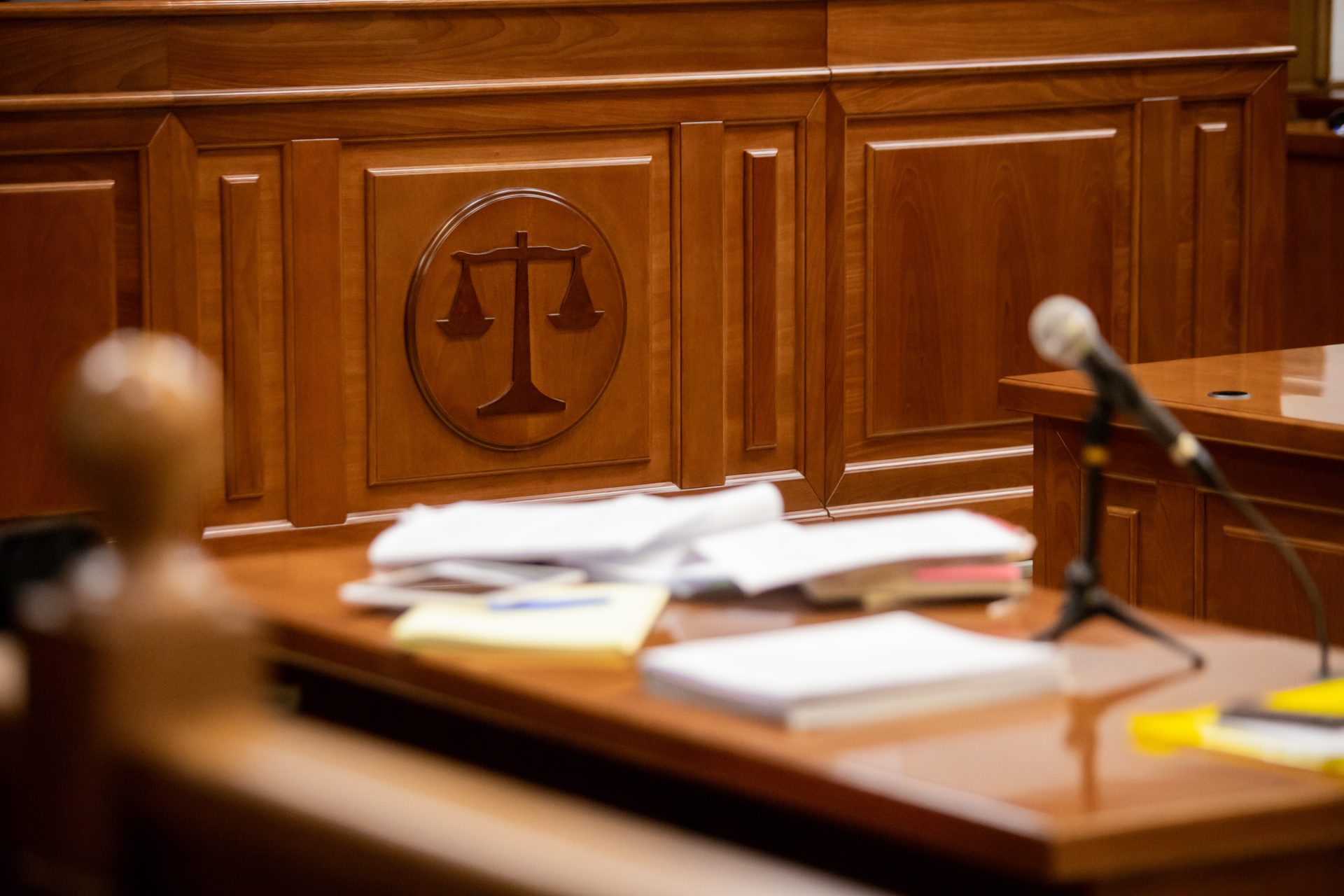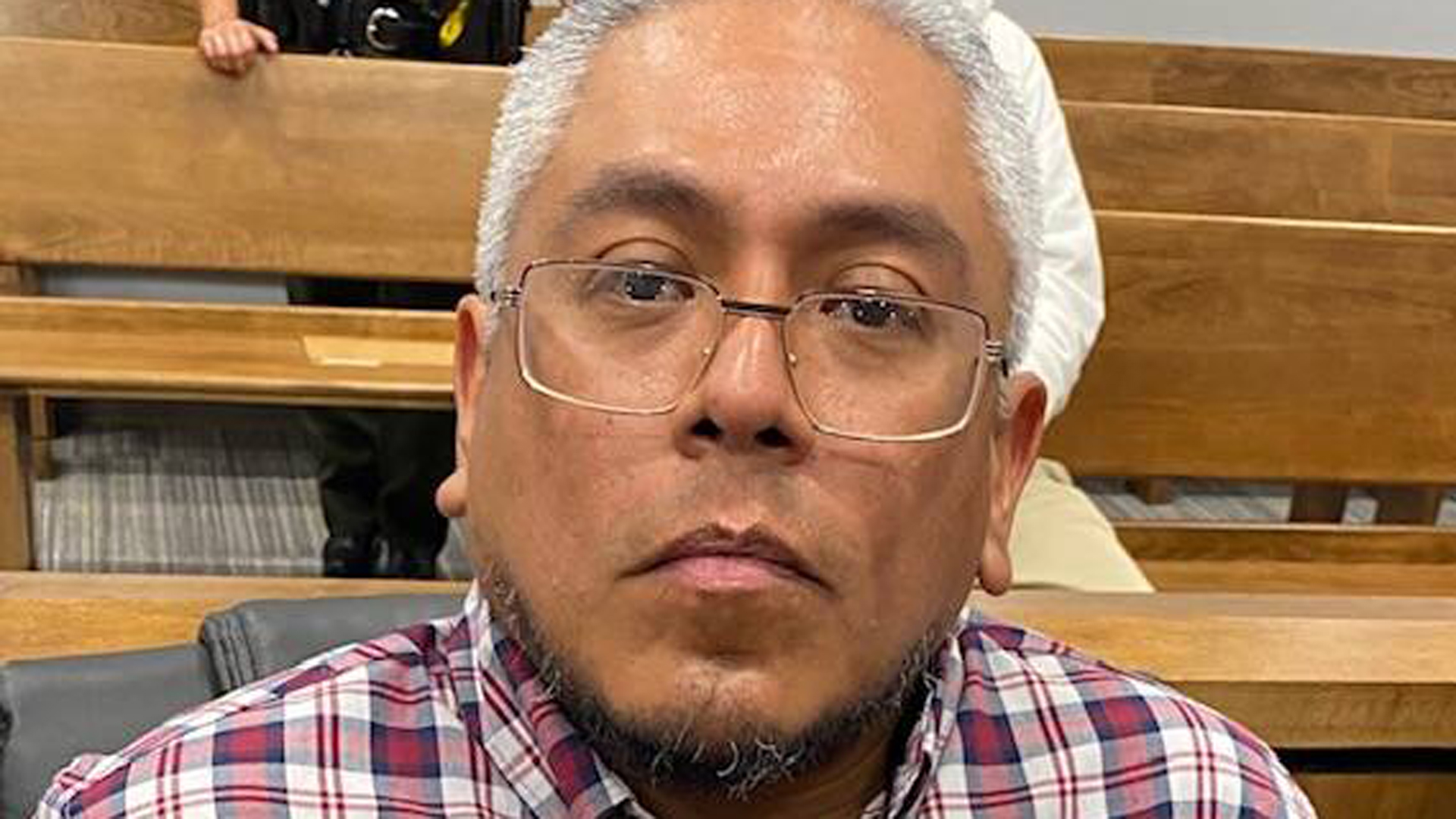AUSTIN, Texas – The State of Texas, through the Attorney General’s Office, has filed a lawsuit against Brownsville-based Milwhite, Inc., for violations of the Texas Clean Air Act.
The state, on behalf of the Texas Commission on Environmental Quality (TCEQ), is seeking injunctive relief, civil penalties, attorney’s fees and costs, and any other available relief under the Act.
The lawsuit has been filed in the Texas 53rd District Court in Travis County.
“This is a civil suit to enforce the Texas Clean Air Act (“TCAA”), codified in Chapter 382 of the Texas Health and Safety Code, and relevant TCEQ rules and regulations promulgated thereunder as related to fugitive dust emissions emanating from the Milwhite facility located at 5487 South Padre Island Highway, Brownsville, Texas 78521 (the “Site”),” the lawsuit states.
“The Site mills and processes raw materials including barite and common clay and, in doing so, has released emissions in violation of the TCAA, the rules and regulations promulgated thereunder by TCEQ, and an air quality permit issued by TCEQ.
“Despite numerous complaints regarding emissions from local residents, multiple lawsuits filed against it by the City of Brownsville, a coalition of neighboring property owners, and its own insurance carrier, extensive negative coverage in local media, and significant attention from local legislators, Milwhite continues to operate the Site in violation of, and with disregard for, state law and continues to threaten the health and safety of the surrounding community.”
Residents living near the facility have been complaining about the dust and noise created by Milwhite for the past year and a half. The residents have been helped in their protests by Valley Interfaith.
Local elected officials have welcomed the state’s lawsuit.
“The violations Milwhite is accused of are incredibly serious and dangerous,” said state Rep. Erin Elizabeth Gámez, and Brownsville City Commissioner Linda C. Macias in a joint statement.
“Because of the excessive dust that has lasted for over a year—our constituents fear they have suffered respiratory problems, and loss of enjoyment of their outdoor spaces. It is regretful that it has had to come to a lawsuit; however, this is a necessary action that the State of Texas is taking.
“Milwhite has continuously failed to follow the direction from TCEQ to be in compliance with the Texas Clean Air Act, despite multiple attempts via the administrative process by TCEQ. We hope that this case is efficiently adjudicated, and the people of Brownsville impacted are able to get the relief they desperately deserve.”
State Senator Morgan LaMantia agreed. She said:
“When the health and quality of life of families and children are disrupted by conscious harmful actions, we must pursue every available avenue until reaching resolution and accountability. It is unacceptable that our neighbors in the Brownsville community have suffered from health risks and disruptions from conscious negligence, and we hope for justice to be served. Milwhite’s disregard for state environmental regulations cannot be tolerated any longer. The Texas Attorney General’s Office decided to enforce state law by bringing this issue to litigation. The lawsuit may bring much-needed relief to our community from this distress.”
According to the company’s website, Milwhite, Inc. was founded in 1923 by developing sources and supplying clay to refineries.
“Today, Milwhite, Inc. is the industry leader in high tech specialty minerals and products throughout the world. Milwhite has evolved into providing a broad range of products for animal health and production, oil and gas exploration and other industrial uses. With almost a century of experience, Milwhite, Inc. is an industry leader in Specialty Minerals for the animal feed industry, oil industry and other industrial uses,” Milwhite’s website states.
According to the Texas Attorney General’s Office, Milwhite’s only regulatory enforcement history with TCEQ prior to 2023 concerned a minor record-keeping violation in 2022.
“However, something changed in 2023,” the lawsuit states. “TCEQ’s regional office covering Brownsville and Cameron County received at least eight formal complaints in early 2023 alleging fugitive excessive dust emissions were emanating from the site and migrating to neighboring homes.”
In response, the lawsuit states, TCEQ conducted an investigation of the site from February 14 to 28, 2023, and documented five violations of state rules and regulations. Such violations included failing to comply with air quality permits under 30 Tex. Admin. Code § 116.115(c) and Tex. Health & Safety Code § 382.085(b), and the creation of a nuisance under those statutes and 30 Tex. Admin. Code § 101.4.
The lawsuit says that on June 26, 2023, TCEQ received another formal complaint alleging that the site was still generating excessive dust and related emissions that were negatively impacting both the health and property of its neighbors. The complainant also expressed concerns that the site was operating outside its permitted time frame.
“This was the first of what would become 16 additional formal complaints received by TCEQ from June to August of 2023 regarding Milwhite and its operations at the site,” the lawsuit states.
In response, TCEQ launched a follow-up investigation that took place from July 13 to 27, 2023.
“This investigation identified 15 separate violations related to air quality permits under 30 Tex. Admin. Code § 116.115(c) and Tex. Health & Safety Code § 382.085(b), and the creation of a nuisance under those statutes and 30 Tex. Admin. Code § 101.4. A Notice of Enforcement concerning the 15 observed violations was sent to Milwhite on August 31, 2023,” the lawsuit states.
Following the August 31, 2023, Notice of Enforcement and an additional inspection in September 2023, “TCEQ attempted to negotiate a mutually agreeable solution with Milwhite to address the emissions issues at the site,” the lawsuit states, “going so far as to submit an Agreed Administrative Order to Milwhite to sign whereby Milwhite would take certain corrective actions to settle and resolve the matter.”
But Milwhite never finalized the Agreed Order, and it was subsequently withdrawn by the TCEQ, the lawsuit states.
“As discussed below and as confirmed by TCEQ investigators during its February 2024 investigation, Milwhite continues to operate the site in defiance of TCEQ rules and regulations despite ample notice of its non-compliance and the ongoing impact to the local community in which it operates.”
TCEQ’s permit allowing Milwhite to operate in Brownsville contains 28 special conditions. A July 2023 Investigation found Milwhite was in violation of 14—or half—of these special conditions.
“Upon arriving at the site on September 12, 2023, TCEQ investigators confirmed an adjacent, un-permitted property was being used by Milwhite to store barite. Per Special Condition 24 of the Permit, Milwhite may stockpile up to 69,000 square feet of raw material at the Site. Investigators found 146,740 square feet of raw material—more than twice the allowable amount under the Permit—stockpiled at both authorized locations at the Site and unauthorized adjacent properties,” the lawsuit states.
The lawsuit says Milwhite has a “clear disinterest in complying with state rules.”
Another part of the lawsuit said a health investigator from TCEQ “reported feeling discomfort, coughing, and a dry throat after being subjected to the emissions plume” at the Milwhite site.
“The simple act of walking through the grass at the neighboring properties left the investigator’s boots covered in dust.”
The lawsuit adds: “By the activities described above, Milwhite has caused, suffered, allowed, or permitted violation of the TCAA and TCEQ permits and rules promulgated thereunder, including 30 Tex. Admin. Code §§ 101.4 and 116.115(c), each day from at least February 14, 2023 through the date of this filing, by creating a nuisance through the discharge of air emissions at the site “in such concentration and of such duration as. . . to adversely affect human health or welfare, animal life, vegetation, or property, or as to interfere with the normal use and enjoyment of animal life, vegetation, or property.”
City of Brownsville’s 5th Motion for a Temporary Injunction
While the State of Texas is taking Milwhite to court in Travis County, the City of Brownsville is trying to do the same in Cameron County. But it is taking a long time.
On Friday, May 31, the Office of the Attorney for the City of Brownsville sent the Hon. Judge David Sanchez, 444th Judicial District Court of Cameron County, a copy of the city’s fifth motion for entry of a temporary injunction.
The City’s motion states: “The City of Brownsville (“the City” or “Plaintiff”) has presented its proposed temporary injunction four times times to the Court (on March 28th, April 16th, April 26th, and May 16th). The City presents it a fifth time, contemporaneous with this instrument. Over ten weeks have passed since the parties rested at the hearing on the City’s application for temporary injunction and the Court first said it would take this matter under advisement and “get [the parties] a ruling” (on March 20th). Over two weeks have passed since the last hearing on this matter, when the Court again stated that it would “get [the parties] a ruling” (on May 16th).
The fifth motion from the City of Brownsville contains a timeline of events:
February 16, 2024
City filed, inter alia, an application for temporary injunction.
March 7, 2024
First day of hearing on City’s application for temporary injunction
March 19, 2024
Second day of hearing on City’s application for temporary injunction
March 20, 2024
Third day of hearing on City’s application for temporary injunction;
Both parties presented closing arguments and rested. The Court stated: “I am going to take this matter under advisement” and instructed the parties to submit proposed orders.”
March 28, 2024
City filed its proposed temporary injunction. City also sent letter to the Court, presenting proposed temporary injunction, and urging entry of same.
April 9, 2024
City filed its first Motion for Entry of Temporary Injunction.
April 12, 2024
City filed its Second Motion for Entry of Temporary Injunction.
April 16, 2024
City sent a letter to Court, via e-file, e-mail, and certified mail, presenting the pending motions for temporary injunction, and again presenting the proposed temporary injunction.
April 17, 2024
City filed its Third Motion for Entry of Temporary Injunction; Parties were advised that the Court would not schedule hearings until the Court had visited the site.
April 24, 2024
City filed its Fourth Motion for Entry of Temporary Injunction and Objections to Judicial Site Visit.
April 26, 2024
City sent letter to Court, via e-file, e-mail, and certified mail, presenting the pending motions and again presenting the City’s proposed temporary injunction.
April 30, 2024
Court set hearing on City’s motions for temporary injunction to occur on May 16, 2024.
May 16, 2024
Hearing on City’s motions for entry of temporary injunction. The Court advised, “I don’t need to hold more arguments” and that it would make a ruling.
May 16, 2024
City again filed its proposed temporary injunction.
May 28, 2024
State of Texas suit against Milwhite in Travis County, Texas.
In its arguments, the City of Brownsville states:
“The Court should grant the requested temporary injunction because the City has presented testimony showing a probable right to the relief it ultimately seeks and probable injury absent restraint. The Court’s failure to enter a temporary injunction, despite its obligation to do so, permits Milwhite to continue to defy governing authority and deliberately harm the local community.
“Because no evidence supports finding that Milwhite is in compliance with the municipal ordinances at issue, denying the City’s request for a temporary injunction would constitute an abuse of discretion.
“The Court has a duty to enjoin the violations and has no discretion to exercise in this matter.
“The Court’s ten-week delay in ruling on the City’s application for temporary injunction may merit issuance of a writ of mandamus.”
A writ of mandamus can compel a trial court to act.
The post State of Texas sues Brownsville company for violating Texas Clean Air Act appeared first on Rio Grande Guardian.
 (2).png)
 3 months ago
122
3 months ago
122









 English (US)
English (US)